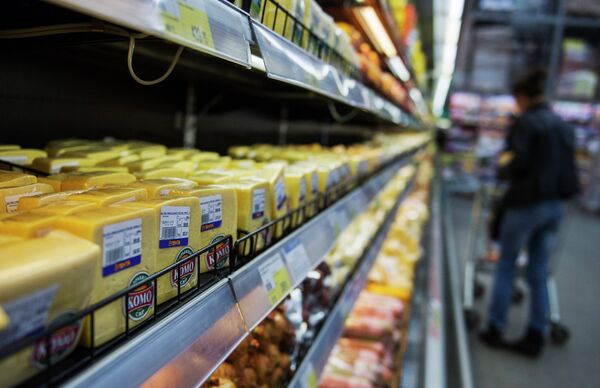TALLINN, August 10 (RIA Novosti) – The Estonian government should seriously treat Russia’s recent import ban on a number of goods from the countries that had earlier imposed sanctions on the country and explain to people how it is going to support manufacturers in case of possible difficulties, Estonia’s lawmaker Enn Eesmaa believes.
“Without a doubt, the government should take these response measures seriously as they will inevitably have a negative impact on the Estonian economy and affect manufacturers,” Eesmaa told Latvia’s Delfi website on Sunday.
According to the lawmaker, the authorities hope in vain that manufacturers have prepared crisis plans to redirect Russian export to other countries.
“It is expected that the economy may lose up to 75 million euros ($100 million). This sum is enough to start getting worried. The situation on the European market will change significantly as the other EU member countries could not export to Russia,” the politician stressed.
Earlier, Estonian Prime Minister Taavi Rõivas expressed hope that manufacturers already have alternative plans to mitigate the consequences of the Russian ban.
According to Statistics Estonia, exports of agricultural products to Russia by the end of the previous year stood at 19.2% of the country’s total exports. The annual export of dairy products to Russia totals about 50 million euros ($67 million), export of fish products amounts to 15 million euros (about $20 million), export of meat 4.1 million euros ($5.5 million).
On Thursday, Russia introduced a one-year ban on agricultural and food product imports from the countries that have imposed sanctions on Moscow over the Ukrainian crisis, namely Australia, Canada, the European Union, the United States and Norway. The list includes meat, poultry, fish, seafood, milk, dairy products, and fruit and vegetables.

